Today is the Feast of St. Peter and St. Paul, Apostles. The two readings shared below are from Acts 15 and Galatians 2, which relate some of the way these brothers in Christ interacted with one another in accordance with the authority given to them in the days of the early Church. Peter preached most often to the circumcised (Jews) and Paul to the uncircumcised (Gentiles).
Much of the controversies and debates that raged in the early Church revolved around the tension between Jews and Gentiles and what made a person a Christian, such as whether the old ceremonial laws were still necessary for salvation–circumcision in particular. The answer here was (and is) no: we have been justified by faith through Jesus Christ alone.
Peter, an influential apostle/elder in the early Church’s Jerusalem Council, agreed with his brother in the ministry, Paul, who most often and clearly spoke out against the circumcision party. That said, Christ’s first-called fisher of men also struggled with the temptation to give way. In Galatians 2, Paul refers to a time when he called Peter out for his hypocritical behavior, for drawing back from his Gentile brothers in Christ out of fear of the circumcision party. The same Peter who was first of the disciples to confess Jesus as the Christ in Matthew 16 (then rebuked only a few short verses later for speaking against His death and resurrection); and Paul, who breathed threats and murder against the disciples of the Lord, before Christ converted him on the road to Damascus.
As iron sharpens iron, God used these men to refine one another and to speak clearly on the issues facing the early Church, already–even in these early days–beset by heresy and trouble. Their epistles stand as books of the Bible, serving not only those specific sheep to whom they were writing, but generations upon generations of Christians who also struggle with the temptation to doubt God’s Word. Thanks be to God, we are surrounded by a cloud of witnesses, faithful unto death and forgiven to everlasting glory in Christ Jesus our Lord.
Acts 15:1-21
But some men came down from Judea and were teaching the brothers, “Unless you are circumcised according to the custom of Moses, you cannot be saved.” And after Paul and Barnabas had no small dissension and debate with them, Paul and Barnabas and some of the others were appointed to go up to Jerusalem to the apostles and the elders about this question. So, being sent on their way by the church, they passed through both Phoenicia and Samaria, describing in detail the conversion of the Gentiles, and brought great joy to all the brothers. When they came to Jerusalem, they were welcomed by the church and the apostles and the elders, and they declared all that God had done with them. But some believers who belonged to the party of the Pharisees rose up and said, “It is necessary to circumcise them and to order them to keep the law of Moses.”
The apostles and the elders were gathered together to consider this matter. And after there had been much debate, Peter stood up and said to them, “Brothers, you know that in the early days God made a choice among you, that by my mouth the Gentiles should hear the word of the gospel and believe. And God, who knows the heart, bore witness to them, by giving them the Holy Spirit just as he did to us, and he made no distinction between us and them, having cleansed their hearts by faith. Now, therefore, why are you putting God to the test by placing a yoke on the neck of the disciples that neither our fathers nor we have been able to bear? But we believe that we will be saved through the grace of the Lord Jesus, just as they will.”
And all the assembly fell silent, and they listened to Barnabas and Paul as they related what signs and wonders God had done through them among the Gentiles. After they finished speaking, James replied, “Brothers, listen to me. Simeon has related how God first visited the Gentiles, to take from them a people for his name. And with this the words of the prophets agree, just as it is written,
“‘After this I will return,
and I will rebuild the tent of David that has fallen;
I will rebuild its ruins,
and I will restore it,
that the remnant of mankind may seek the Lord,
and all the Gentiles who are called by my name,
says the Lord, who makes these things known from of old.’
Therefore my judgment is that we should not trouble those of the Gentiles who turn to God, but should write to them to abstain from the things polluted by idols, and from sexual immorality, and from what has been strangled, and from blood. For from ancient generations Moses has had in every city those who proclaim him, for he is read every Sabbath in the synagogues.”
Galatians 2
Then after fourteen years I went up again to Jerusalem with Barnabas, taking Titus along with me. I went up because of a revelation and set before them (though privately before those who seemed influential) the gospel that I proclaim among the Gentiles, in order to make sure I was not running or had not run in vain. But even Titus, who was with me, was not forced to be circumcised, though he was a Greek. Yet because of false brothers secretly brought in—who slipped in to spy out our freedom that we have in Christ Jesus, so that they might bring us into slavery—to them we did not yield in submission even for a moment, so that the truth of the gospel might be preserved for you. And from those who seemed to be influential (what they were makes no difference to me; God shows no partiality)—those, I say, who seemed influential added nothing to me. On the contrary, when they saw that I had been entrusted with the gospel to the uncircumcised, just as Peter had been entrusted with the gospel to the circumcised (for he who worked through Peter for his apostolic ministry to the circumcised worked also through me for mine to the Gentiles), and when James and Cephas and John, who seemed to be pillars, perceived the grace that was given to me, they gave the right hand of fellowship to Barnabas and me, that we should go to the Gentiles and they to the circumcised. 10 Only, they asked us to remember the poor, the very thing I was eager to do.
But when Cephas came to Antioch, I opposed him to his face, because he stood condemned. For before certain men came from James, he was eating with the Gentiles; but when they came he drew back and separated himself, fearing the circumcision party. And the rest of the Jews acted hypocritically along with him, so that even Barnabas was led astray by their hypocrisy. But when I saw that their conduct was not in step with the truth of the gospel, I said to Cephas before them all, “If you, though a Jew, live like a Gentile and not like a Jew, how can you force the Gentiles to live like Jews?”
We ourselves are Jews by birth and not Gentile sinners; yet we know that a person is not justified by works of the law but through faith in Jesus Christ, so we also have believed in Christ Jesus, in order to be justified by faith in Christ and not by works of the law, because by works of the law no one will be justified.
But if, in our endeavor to be justified in Christ, we too were found to be sinners, is Christ then a servant of sin? Certainly not! For if I rebuild what I tore down, I prove myself to be a transgressor. For through the law I died to the law, so that I might live to God. I have been crucified with Christ. It is no longer I who live, but Christ who lives in me. And the life I now live in the flesh I live by faith in the Son of God, who loved me and gave himself for me. I do not nullify the grace of God, for if righteousness were through the law, then Christ died for no purpose.
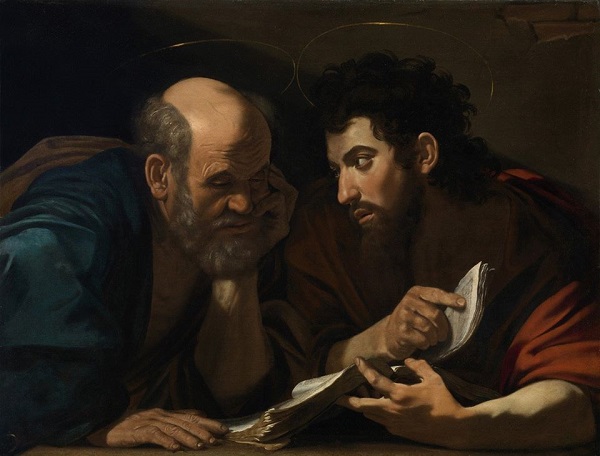

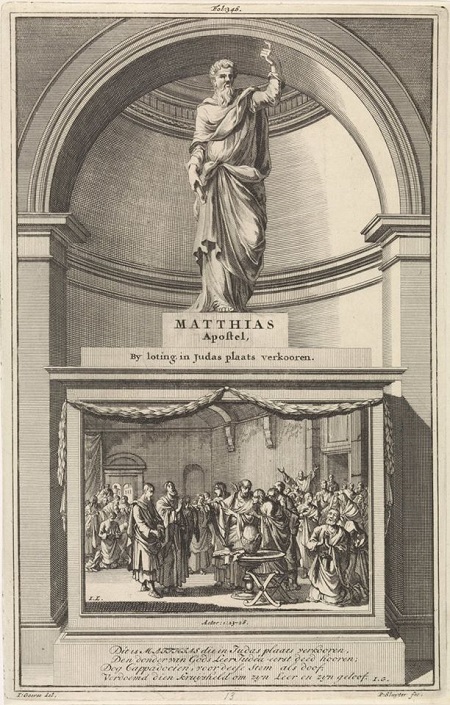 Today is the Feast of St. Matthias, Apostle, and—like all feasts and festivals (as well as commemorations)—is designed to turn our eyes to Christ Jesus our Lord. While commemorations serve to remember a broad range of the saints and events across history that help us proclaim Christ, feasts/festivals are a remembrance of those events and people whose earthly lives were intertwined with the earthly life and ministry of Christ. From the LCMS Worship Library on “Commemorations Questions and Answers”:
Today is the Feast of St. Matthias, Apostle, and—like all feasts and festivals (as well as commemorations)—is designed to turn our eyes to Christ Jesus our Lord. While commemorations serve to remember a broad range of the saints and events across history that help us proclaim Christ, feasts/festivals are a remembrance of those events and people whose earthly lives were intertwined with the earthly life and ministry of Christ. From the LCMS Worship Library on “Commemorations Questions and Answers”: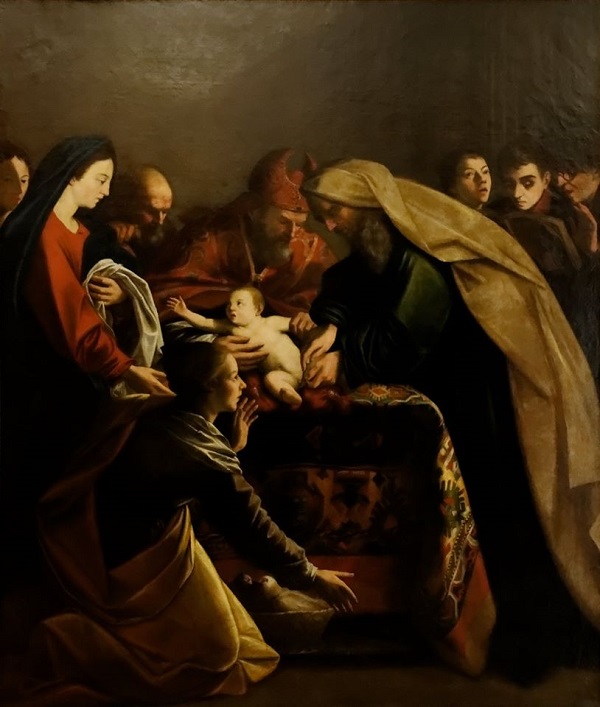
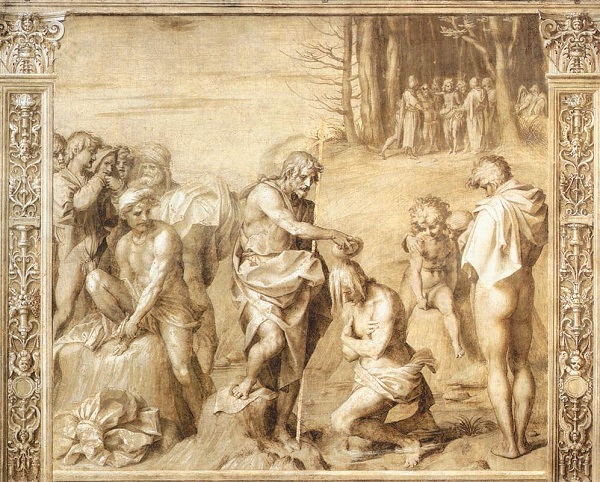
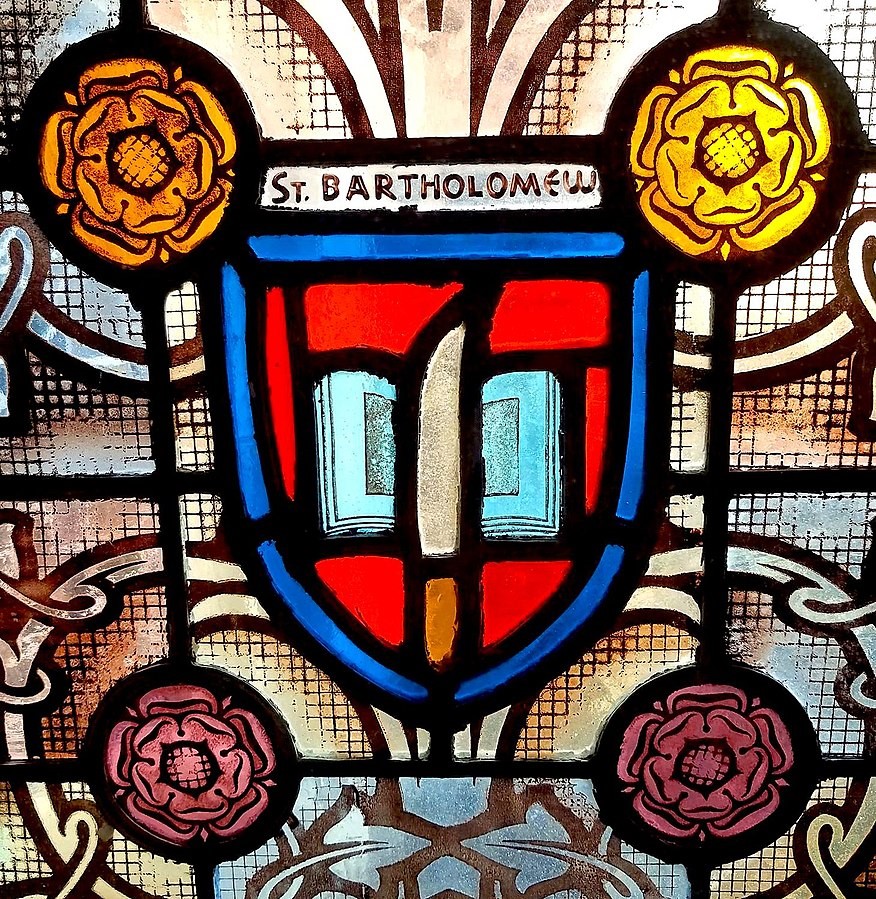
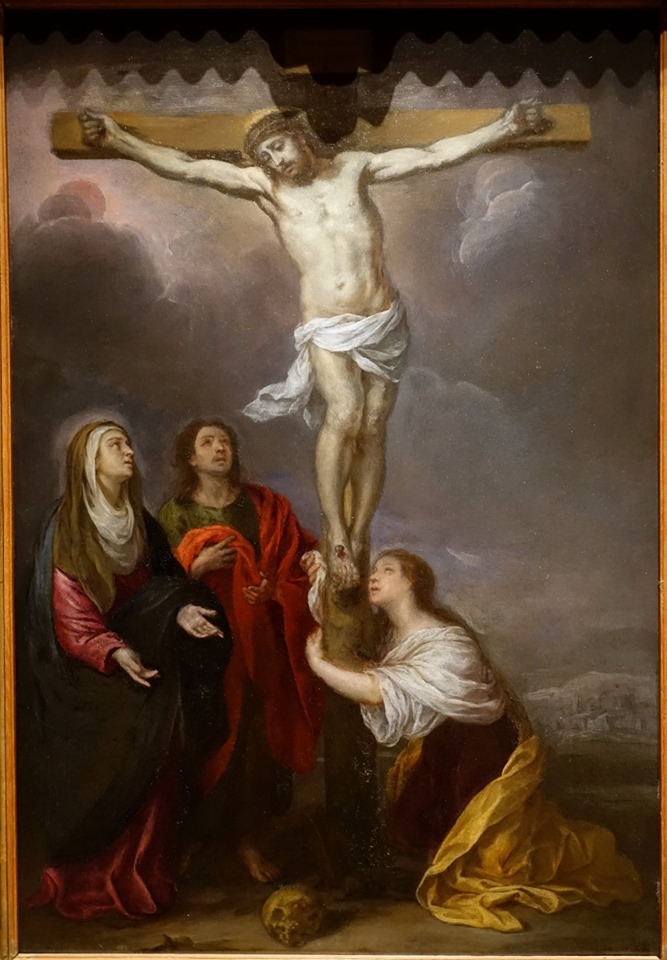
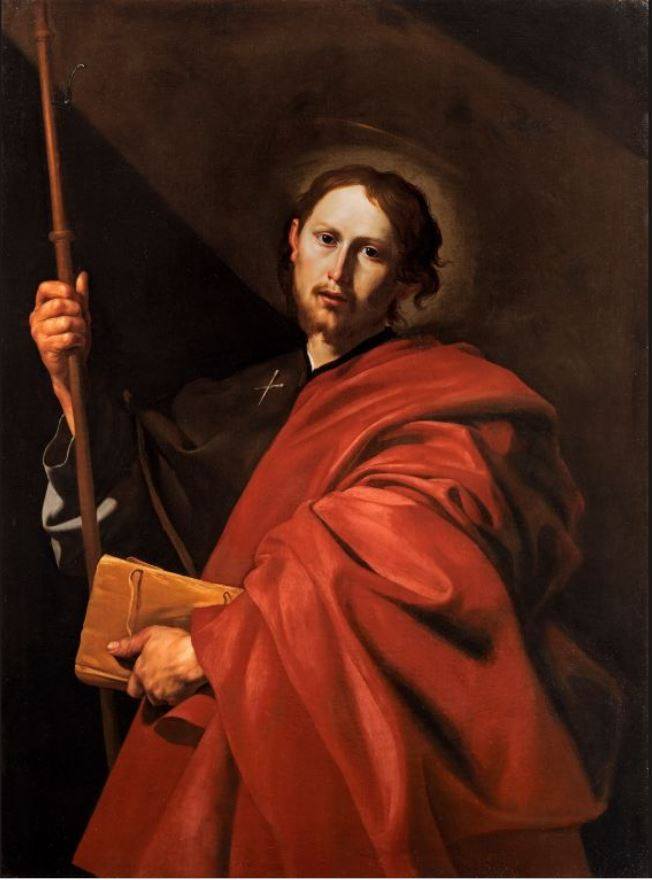
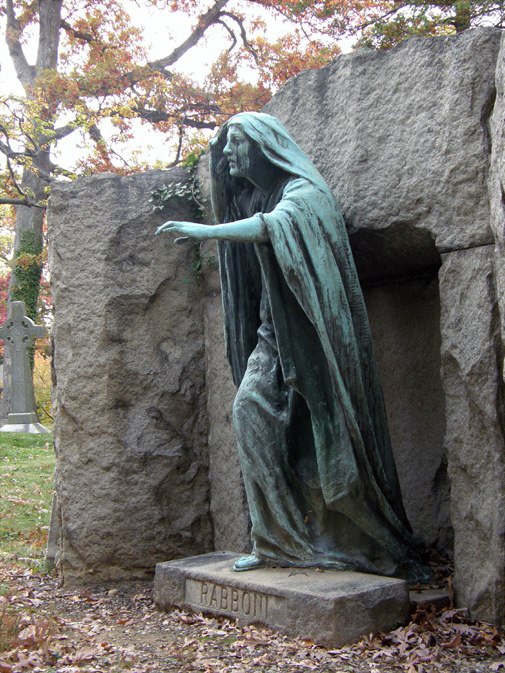
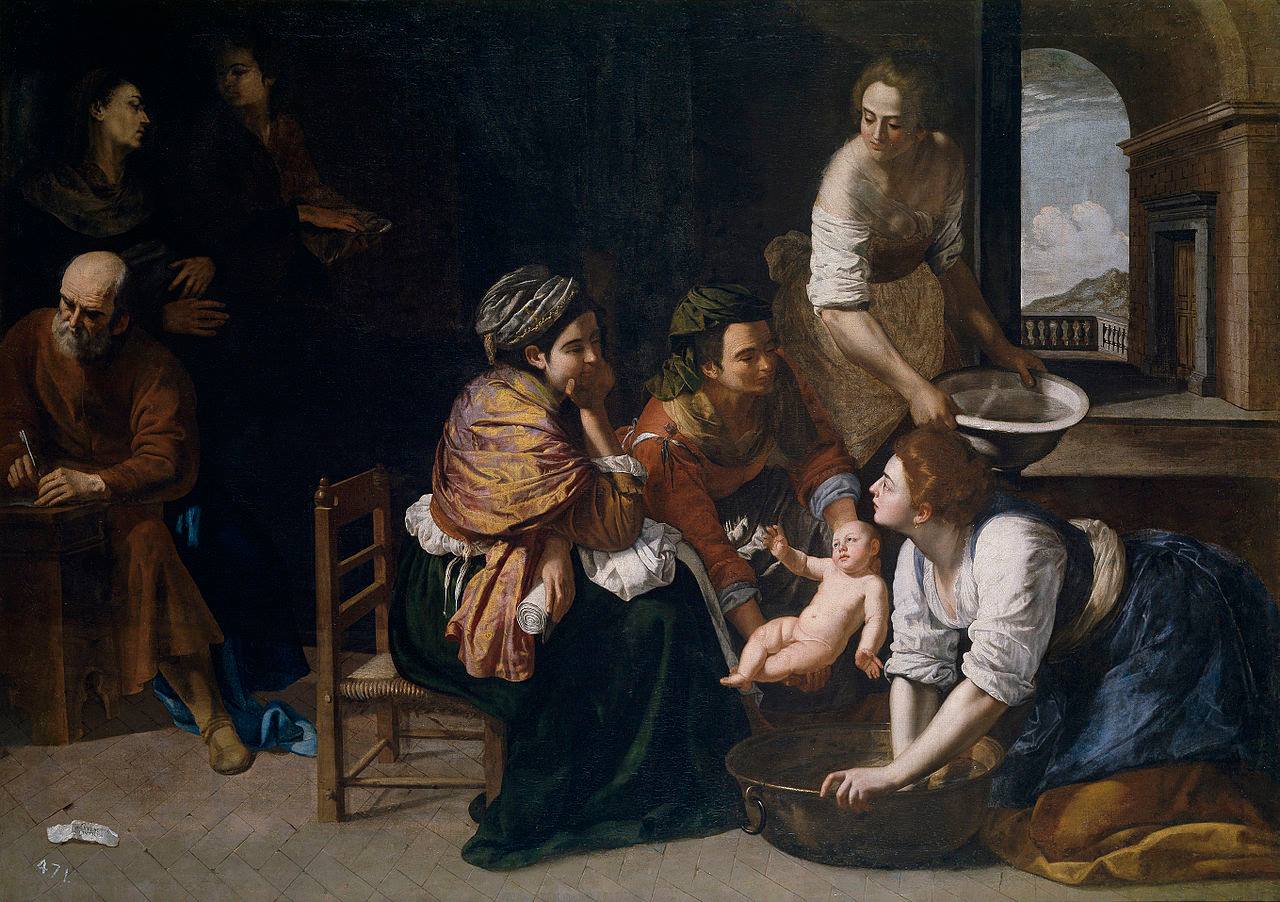
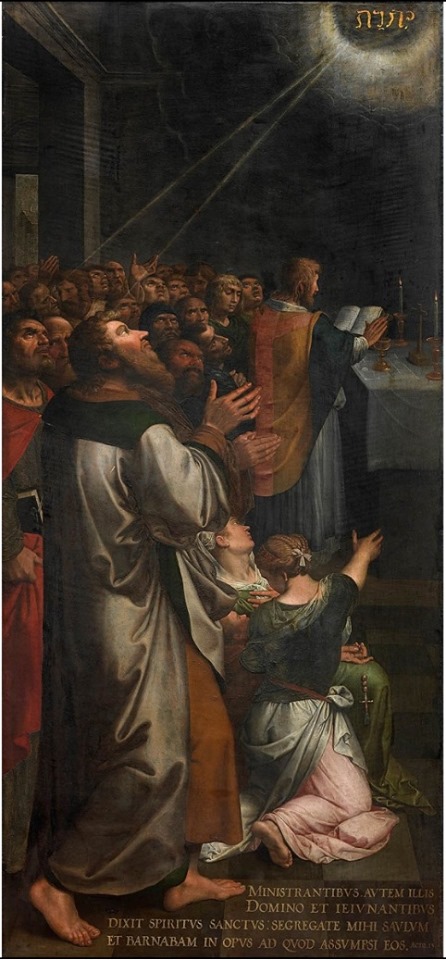
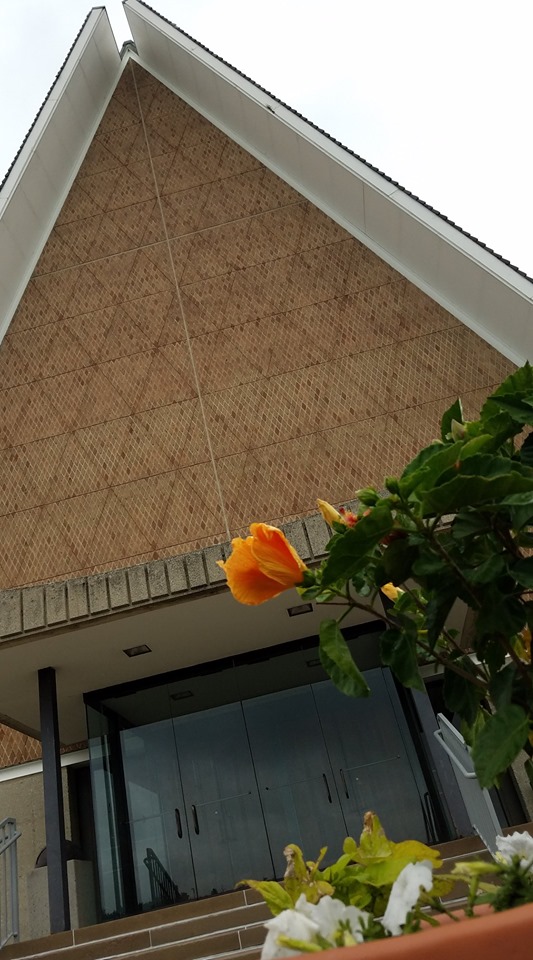 In our prayers we remember Deaconess Shaina Wurdeman (who works here at CTSFW as Deaconess Admission Counselor) as she mourns the death of her grandmother.
In our prayers we remember Deaconess Shaina Wurdeman (who works here at CTSFW as Deaconess Admission Counselor) as she mourns the death of her grandmother.